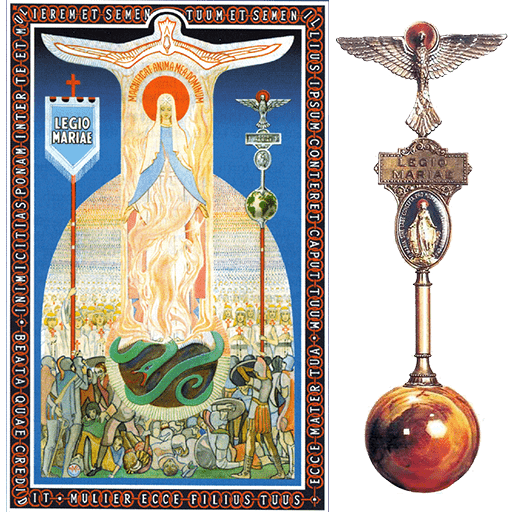The Kingship of Jesus is Our Hope
Concilium Allocutio November 2010
By Fr. Liam O’Cuiv
Spiritual Director of Veneranda Curia
Deputising for Fr. Bede McGregor O.P.
The Kingship of Jesus is Our Hope
As today is the feast of Jesus Christ Universal King, I thought it would be appropriate to say a few words about the Kingdom of God.
The announcement of the Kingdom of God was the actual core of Jesus’ words and works: the announcement that the Kingdom of God is at hand. This is an announcement that something new takes place. To quote Pope Benedict in his chapter on The Gospel of the Kingdom of God in his book, Jesus of Nazareth, “The new and totally specific thing about his message is that he is telling us: God is acting now - this is the hour when God is showing himself in history as its Lord, as the living God, in a way that goes beyond anything seen before.”
Some people prefer to speak of the Reign of God, God’s reigning in us. Even Pope Benedict says that “Kingdom of God” is not an adequate translation. He says it would be better to speak of God’s being Lord, of his lordship, because Jesus when he speaks of the Kingdom of God is quite simply proclaiming God who is able to act concretely in the world and in history and is even now so acting.
The reason that now is the fullness of time (Mark 1:15) is that it is in Jesus Christ that God draws near to us. In Jesus God is now the one who acts and who rules as Lord, ruling in a divine way without worldly power.
In announcing the Kingdom Jesus adds, “repent and believe the good news”. Could it not be said that where faith is lacking there is no expectancy of God’s acting, there is no openness to God. If we find ourselves without hope, saying, “what’s the use?” we need to repent we are in need of a radical conversion.
When he proposed the Luminous Mysteries of the Rosary, Pope John Paul II singled out the significant moment of Christ’s proclamation of the Kingdom of God with his call to conversion as the third of the Mysteries for our contemplation. In a world marked by sinful division between rich and poor, the message of Jesus is that all are called to enter the Kingdom of God, which makes blessed especially to the poor and lowly, those who have accepted it with humble hearts.
In Mary, the mother of Jesus, we have such a one of a lowly and humble heart whose faith is unadulterated by any doubt and who is more blessed because of her belief in God than because she conceives the flesh of Christ. (Cf. CCC 506). Jesus would say of his mother, “Blessed are those who hear the word of God and obey it” (Lk 11:28). Even at the moment of being told that she would become the mother of Jesus, the Son of the Most High, her faith is unquestioning, and throughout her life she is the one who treasured all things in her heart.
As Legionaries, are we not similarly called to prepare our hearts for God’s acting in a new and decisive way in our lives and in the hearts of those around us? The history of the Legion of Mary from its foundation has been one of God’s working in a most remarkable way through the most simple of instruments. Is not the imitation of Mary’s humility both the root and the instrument of Legionary action? How can we listen to Jesus’ announcement and fail to respond to the call to active apostleship and an intensity of effort?
When Pius XI instituted the Feast of Christ the King, in line with the theology of his time he stated that the Catholic Church is the Kingdom of Christ on earth. Today we speak of the Church as the seed and the beginning of the Kingdom, the fulfilment of which we await at the end of time. We await even greater things! As members of the Body of Christ, the Church, we must continue to announce unashamedly the Reign or Lordship of Christ until he comes in glory. The Handbook reminds us that there need never be discouragement; that the mark of the Cross is a sign of hope; and even that failure is only a postponed success.
